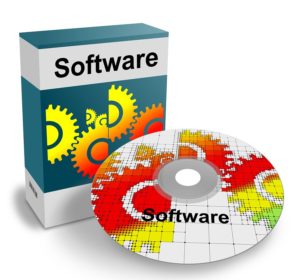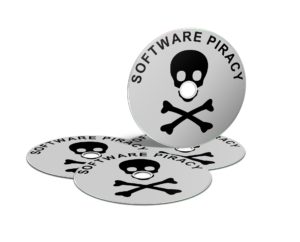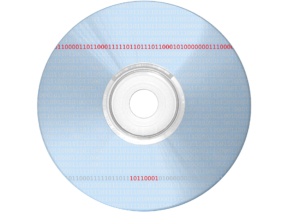
The issue.
Sure you also are ignoring your application protection!
That’s, until you are among the 0.1 percentage of customers who do browse the Consumer License Agreement (EULA, also called software license).
Otherwise, well, you then sign agreements blindfolded since that container high in legal mumbo jumbo whenever you use a plan… yes, it’s a deal!
“If all software licenses were easy contracts aiming fair terms useful application protection would not actually be a problem. However, the majority are extended texts with appropriate jargon that keep these few who do read them thwarted and bedeviled.”
Some enclose conditions to if he recognized what he agreed to that the regular person might target.
For instance, in expansion to defense against cracking, several software licenses currently lead the program business the best also have it immediately delivered to the program marketer and to collect details about your PC.
Some, particularly application licenses for freeware, store conditions where you accept installing additional application that you don’t need, some of it noticeable adware or spyware.
Consequently, one may suppose the freeware will be to blame for the poor things which have occurred, however, is not it the consumer who not browse the appropriate substance, who’s at fault?
In either case, people don’t browse the EULA. Installing and while installing software, we’re often interested in exactly what the new software brings.
That EULA is simply yet another thing on since it is generally not understandable in a brief period of time to fall time, thus not read whatsoever. But certainly, the following thought that subsequently occurs is: what have you decided to whenever you visited I agree?
Particularly with freeware, there might be a much greater challenge.

“Freeware is always blame. Sure, it’s not free to reverse engineer, alter, or redistribute freeware, but there’s also the type of freeware that’s covered as adware and sometimes even spyware.”
An illustration.
When Goat produced a surprise of protest remember from about 6 years back. Its GAIN Publishing Consumer License Agreement mentioned the consumer immediately agreed with additionally adding the GAIN AdServer software when taking the EULA.
Therefore, the program license offered the organization agreement to set up software that gathered particular identifiable information regarding computer use and web surfing.
At the conclusion, this led to a show of kinds of advertisements about the user’s computer.
Next the EULA stated that Goat actually unauthorized common uninstallers‘ use because of their own resources which numerous people trusted to get rid of this unwanted material from their products.
But additionally, customers were banned from using products about the GAIN AdServer and its own communications like internet monitoring applications or related, thus removing all possible control.
Such conditions were greater than a link too much for all people and are no further associated with application protection against cracking.
Therefore, if all-is given within the software license of the item, then it’s also not, or what might help determine by what you wish to have installed!
Indeed, particularly the program handling in the fringe of legal limits will attempt to extend out what’s not absolutely correct. And you thought it properly: that’s most often exposed within the EULA.
Options.
One could easily get the sensation that little can be achieved to combat TOS or a poor EULA. Well, that’s completely false, lately there has been instances where common providers have improved their terms of support due to the person’s aversion for some too flagrant conditions within them.
Lawyers.
In lawyer conditions, A Finish User License Agreement is just a legal agreement between the application user as well as a software program writer. It’s a permit that allows the consumer the properly established and best to utilize a PC software in a particular way.
For instance, Microsoft software licenses provide the best to offer these details to other companies and also to collect details about the consumer’s program and its own use to the organization. Additionally they give the best to create adjustments towards the person’s computer without seeking permission to Microsoft.
Today, you shouldn’t be mistaken by considering this can be a Microsoft-only event, software licenses often possess a term which allows suppliers to create adjustments to customers’ methods without notifying or asking the consumer.
Often, an EULA describes any rights they’re forfeiting by agreeing to the EULA, and the amount of computers a person may use the program on, that breaking or reverse engineering or every other type of illegal piracy is forbidden.
The consumer is meant agreeing it by just utilizing the program, and sometimes even simply by starting the shrink wrap about the application package, or is generally requested to check on a switch to take the terms of the EULA.
The consumer may will not come into the contract by clicking when prompted to take the EULA during an install by which case the program installation is generally ended I don’t take or by returning the program solution to get a return.
Incidentally, for sites, the TOS (conditions of support) may be the legitimate counterpart in the Consumer License Agreement for application.
To date, all might seem very standard, however, the program license is notorious for containing conditions that are stealthy keeping crazy limitations about the conduct of application customers while offering supplier or the program developer with very intruding forces.
Comment that incorporating the poor what to application have mainly occurred with freeware there seems a pattern recently to change these same bad practices towards test and shareware ware, yes the terms of support of some well known companies have already been under fire.
Thus, complaining works indeed!
A good example is Fb who changed its TOS back towards the previous one after people reported in bulk the terms useful instantly stated that Facebook held all rights towards the person’s content when he removed his account.
Another example is Google’s Opera browser’s terms of company which gave Google a low-exclusive to show and deliver all information sent through the browser.
Actually, a fundamental concept behind the EULA is very sensible: to safeguard the seller from software piracy.
However the fear is the fact that software licenses are becoming increasingly more limiting constantly. e.g. Microsoft began in vista’s EULA although this really is what testers and scientists are employing constantly to stop the payment in electronic devices.
Particular license deals currently disallow people from creating or delivering details about the performance of the program.
The pattern to incorporate increasingly more restrictions on which customers may do using the application they purchase becomes very unpleasant.
That stops software security specialists in addition to testers from reporting about their activities having a particular software program. Such determinations are way prior defense against illegal practices.
The answer.
It’s lawyer substance however, you might wonder whether these licenses are not illegal. Based on lawyers however, many of them do endure in court, the exception when the text isn’t reasonably clear being.
Another exception needs to do with children who’re largely separated for that contracts made in this way.
Since it has been forced you whether you prefer it or not the truth that an EULA might legitimately unenforceable, in either case is of small comfort.
The harm is performed when the plan is mounted on your computer when the authorized agreement were invalid and it does not actually matter. Currently by simply utilizing the computer, the consumer is confirming his area of the contract.
The main concept behind the program license – developing a distinct legal protection against illegal software piracy – is definitely bypassed.
Be informed, a press of the mouse button might create a great deal of trouble. Thus, only one guidance could be provided: discard that blindfold, do browse the EULA, which doesn’t affect freeware!

 Website commenting
Website commenting
 Website commenting
Website commenting The very best advertising on the planet is the natural search of
The very best advertising on the planet is the natural search of  To understand what few understand in SEO, you’ve got to have a mentor or believe how few believe. Obtaining a mentor on your own, somebody that has been there and done this, probably trumps the believing how few believe. This isn’t because you’re not intelligent, but since your learning curve is significantly reduced in procuring to
To understand what few understand in SEO, you’ve got to have a mentor or believe how few believe. Obtaining a mentor on your own, somebody that has been there and done this, probably trumps the believing how few believe. This isn’t because you’re not intelligent, but since your learning curve is significantly reduced in procuring to  Computer software is a very general term used to emphasize the group of their
Computer software is a very general term used to emphasize the group of their  The program software’s help in performing more specific tasks. These jobs can be industrial, business, educational etc.. Computer software has to be loaded in the computer storage like RAM, hard drive etc.. Once loaded, the program has to be executed. This stage involves passing the directions from program software through the system software to the hardware that converts it into machine language. Software is the vocabulary of a computer and like diversity in human language, there are a variety of forms of computer languages available also. The softwares have made life so straightforward.
The program software’s help in performing more specific tasks. These jobs can be industrial, business, educational etc.. Computer software has to be loaded in the computer storage like RAM, hard drive etc.. Once loaded, the program has to be executed. This stage involves passing the directions from program software through the system software to the hardware that converts it into machine language. Software is the vocabulary of a computer and like diversity in human language, there are a variety of forms of computer languages available also. The softwares have made life so straightforward.
 An average RCM client has complicated billing requirements, like the requirement for use or recurring billings -centered billings that are measured, in addition to the requirement to handle revenue recognition policies and deferred income. They therefore are buying reliable, automatic method to overcome their problems and are overwhelmed. Usually, an average, new client may have a large number of documents of deferred income amounts and billings purchases within an Excel spreadsheet that really must be updated on the regular basis. Frequently, department or several person is upgrading the spreadsheet, along with the finance department.
An average RCM client has complicated billing requirements, like the requirement for use or recurring billings -centered billings that are measured, in addition to the requirement to handle revenue recognition policies and deferred income. They therefore are buying reliable, automatic method to overcome their problems and are overwhelmed. Usually, an average, new client may have a large number of documents of deferred income amounts and billings purchases within an Excel spreadsheet that really must be updated on the regular basis. Frequently, department or several person is upgrading the spreadsheet, along with the finance department. A platform that is Widely Used
A platform that is Widely Used




































